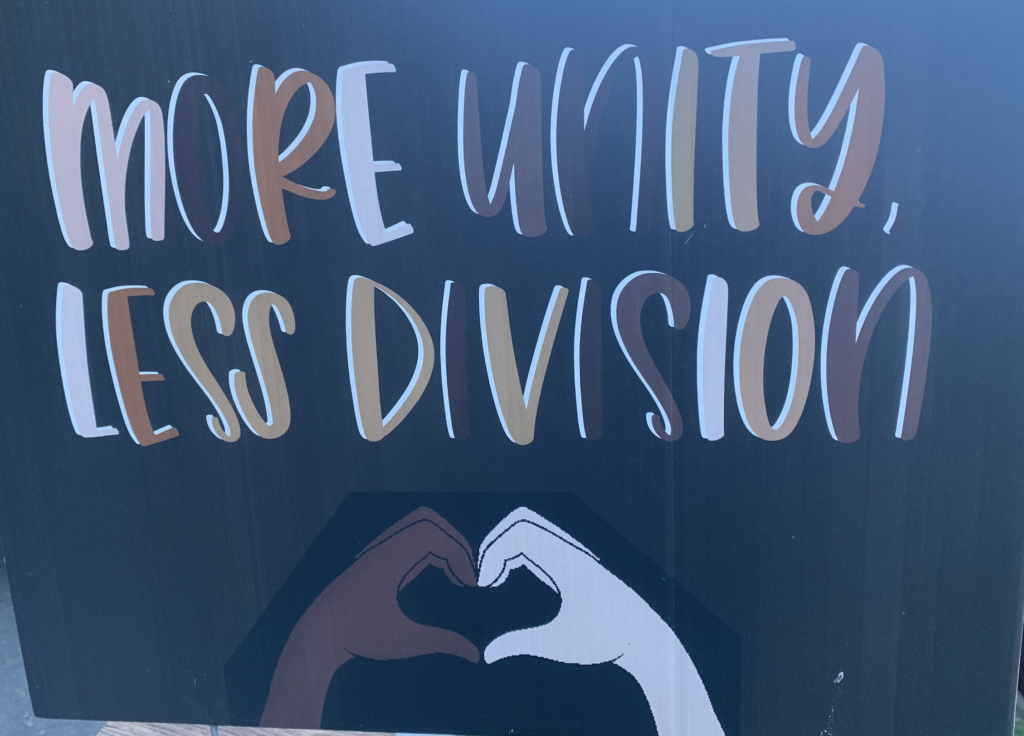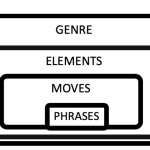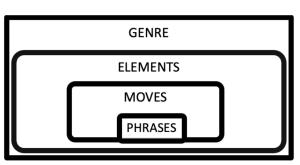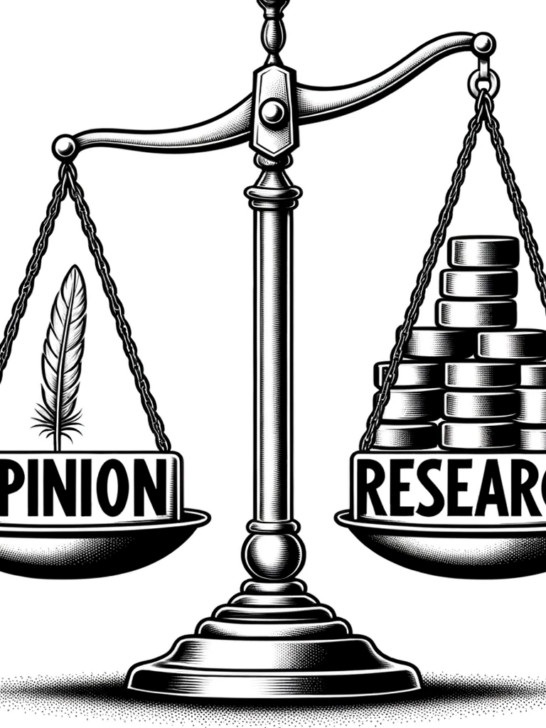What is Rhetoric?
Rhetoric is an umbrella term in the sense that it means so many different things to different people–and during different historical periods.
In popular culture, the term rhetoric functions as a “contronym” or “auto-antonym,” — i.e., a word with multiple meanings, where one meaning is the reverse of another. For example, in every day conversation,
rhetoric may be used positively or disdainfully:
- Negative connotation: In popular culture, rhetoric is synonymous with insincerity, persuasion, and ritual discourse.
Thus, if someone says you’re being rhetorical, that’s not a compliment. That may mean you’re engaged in rhetrickery, sophistry, or persuasion. Likewise, if someone says “That’s just rhetoric!” or “Oh, ignore that guy. He’s just being rhetorical!” then you know they associate rhetoric with rhetrickery — i.e., as inauthentic, manipulative language. - Positive connotation: For professional writers and other knowledge workers, the term rhetorical refers to how well a message accommodates the needs of its readers.
- In the life of a writer, a message that’s not rhetorically appropriate is a failed effort. Thus, if a writer, editor, boss, or critic says, Wow, that’s a solid, rhetorical job, then you know they’ re complimenting how well you composed the message for its audience(s).
Outside informal, popular discourse, in professional and academic settings, rhetoric may also refer to
- any act of symbolic communication; the use of signs (semiotics)
- the art, practice, theory, and study of effective communication
- heuristics and methods of invention
- interpretive frameworks, especially literary criticism and rhetorical theory
- a method for achieving agency and creating change.
Synonymous Terms
Rhetoric may refer to a text, a composition, a narrative, a speech, a comment, or prose — really, any act of symbolic communication.
Rhetoric refers to discourse that is persuasive and eloquent or fallacious and deceptive (see, e.g., fallacious kairos; fallacious logos; fallacious pathos; fallacious ethos).
Related Concepts: Critical Thinking; Critical Literacy; The CRAAP Test; Rhetorical Knowledge; Visu
1. Rhetoric refers to any act of symbolic communication
Rhetoric, in 2023, involves much more than the “the ability, in each particular case, to see the available means of persuasion” (Aristotle, trans. 1991). In today’s world, rhetoric also refers to any act of symbolic communication, any act of signification. This broad definition encompasses visual rhetoric, performative acts, and even the language of design and architecture.
Consider, for example, the realm of visual rhetoric. Every image, symbol, or visual artifact we encounter—from a political cartoon to an Instagram post, from a corporate logo to a street mural—carries rhetorical potential. These visual texts communicate messages, make arguments, and influence our perceptions and behaviors, often without using a single word.
Similarly, the performative acts we engage in every day—from the clothes we choose to wear to the way we style our hair or decorate our living spaces—are forms of symbolic communication. They project an image of who we are, reflecting our identities, values, and beliefs.
Even architecture and design can be seen as rhetorical. The design of a building or a public space communicates a specific message and promotes certain behaviors. For instance, a building with a grand facade and opulent interiors might project power and authority, whereas an open-plan office space could signify collaboration and transparency.
So, when we talk about rhetoric, we’re not just talking about crafting persuasive speeches or writing effective essays. We’re talking about the myriad ways in which we, as humans, communicate and signify meaning, often without saying a word. We’re surrounded by rhetoric—it’s in the clothes we wear, the pictures we post, the spaces we inhabit.
By becoming more knowledgable of the various forms of symbolic communication, you can become a more effective communicator and a more discerning interpreter of the world.
2. Rhetoric refers to the art, practice, theory, and study of effective communication
- Art:
- Rhetoric as an art refers to the creative and innovative use of language to express ideas and emotions effectively.
Rhetoric, as an art, encompasses the ingenious use of language to craft impactful narratives and stir emotions. Take, for instance, Martin Luther King Jr.’s “I Have a Dream” speech. Through evocative language and vivid imagery, he painted a picture of a future where all individuals are judged by their character and not by the color of their skin. Such masterful rhetoric doesn’t merely inform; it moves, persuades, and galvanizes action. This artistry in language is akin to a painter using strokes of color to depict a poignant scene, leaving an indelible mark on the viewer. - Similarly, a writer harnesses the artistic power of rhetoric by employing concrete, sensory language, metaphors, and appeals like ethos, pathos, and logos. This deft handling of rhetoric morphs abstract concepts into tangible narratives and lucid images, fostering deeper audience engagement and comprehension.
- Rhetoric as an art refers to the creative and innovative use of language to express ideas and emotions effectively.
- Practice:
- Aristotle astutely captured rhetoric’s essence as “the faculty of observing in any given case the available means of persuasion.” In everyday contexts, rhetorical techniques manifest frequently. Imagine a teen negotiating a later curfew with their parents, marshaling logical reasoning (logos) and emotional appeals (pathos). On a broader scale, the advertising industry thrives on rhetoric, crafting persuasive narratives and striking visuals to steer consumer behavior.
- Aristotle astutely captured rhetoric’s essence as “the faculty of observing in any given case the available means of persuasion.” In everyday contexts, rhetorical techniques manifest frequently. Imagine a teen negotiating a later curfew with their parents, marshaling logical reasoning (logos) and emotional appeals (pathos). On a broader scale, the advertising industry thrives on rhetoric, crafting persuasive narratives and striking visuals to steer consumer behavior.
- Theory:
- At its core, rhetorical theory delves into how messages are constructed, conveyed, and assimilated. Scholars and academics dissect texts, speeches, and various communication modes to decipher the mechanics of rhetoric and gauge its impact on audiences. For instance, Aristotle’s “Rhetoric” demystifies the three quintessential persuasion modes: ethos, logos, and pathos. An essential element interwoven in rhetorical theory is the context, which dictates the efficacy and perception of a message. The context encompasses the socio-cultural backdrop, the immediate circumstances, and the broader historical setting, all of which shape the creation and reception of rhetorical discourse.
- At its core, rhetorical theory delves into how messages are constructed, conveyed, and assimilated. Scholars and academics dissect texts, speeches, and various communication modes to decipher the mechanics of rhetoric and gauge its impact on audiences. For instance, Aristotle’s “Rhetoric” demystifies the three quintessential persuasion modes: ethos, logos, and pathos. An essential element interwoven in rhetorical theory is the context, which dictates the efficacy and perception of a message. The context encompasses the socio-cultural backdrop, the immediate circumstances, and the broader historical setting, all of which shape the creation and reception of rhetorical discourse.
- Study:
- Rhetorical studies illuminate the intricate interplay between authors, audiences, topics, and the technologies they utilize, and how these relationships influence interpretation and the act of writing itself. As they delve into rhetoric, students might dissect renowned speeches, advertising drives, political dialogues, and other communication forms. This rigorous analysis hones their comprehension of rhetoric’s multifaceted applications and its power to sway audiences.
- Rhetorical studies illuminate the intricate interplay between authors, audiences, topics, and the technologies they utilize, and how these relationships influence interpretation and the act of writing itself. As they delve into rhetoric, students might dissect renowned speeches, advertising drives, political dialogues, and other communication forms. This rigorous analysis hones their comprehension of rhetoric’s multifaceted applications and its power to sway audiences.
3. Rhetoric refers to heuristics and methods of invention.
At its core, rhetoric pertains to the heuristics and methods of invention, equipping writers, speakers, and knowledge workers with tools to navigate, interpret, and influence the narratives that shape our world.
Derived from the Greek word heuresis, which translates to “discover” or “invent,” heuristics stand as exercises or strategies designed to stimulate creative thinking on a given subject or topic. By design, heuristics are not intended to produce a “right” and “wrong” answer. Instead, heuristics are designed to encourage exploratory thinking. Heuristics may address both “divergent” and “convergent thinking” about a topic:
Divergent Heuristics:
Divergent heuristics prompt expansive thinking. Rhetors brainstorm and generate multiple ideas
- Freewriting: A technique where writers jot down ideas as they come, without regard for grammar, punctuation, or structure. This unfiltered flow of thoughts can lead to unexpected insights and ideas. (Elbow, P. (1973). Writing Without Teachers. Oxford University Press.)
- Commonplaces (Topoi): These are typical or recurrent themes that are often used as starting points for arguments or discussions. By exploring these common themes, writers can uncover new perspectives on a topic.
- Conversations with Others: Engaging in dialogue can lead to new insights and perspectives. By discussing a topic with others, a writer can gather a variety of viewpoints and ideas they might not have considered on their own.
- Journaling or Writer’s Journal: Keeping a regular journal allows writers to capture thoughts, observations, and reflections over time. This reservoir of personal insights can be a rich source of inspiration and a tool for refining ideas.
- Visual Brainstorming: Using visual aids such as mind maps, diagrams, or sketches can help individuals process information differently and discover connections they might have overlooked.
Convergent Heuristics:
Convergent heuristics challenge students to narrow, refine and structure their thinking.
- Burke’s Pentad: Developed by Kenneth Burke, this tool examines human motivations and actions through five key terms: Act, Scene, Agent, Agency, and Purpose. It provides a structured way for writers to analyze a situation or narrative.
- Document Planner: This tool helps writers organize and structure their ideas from a rhetorical perspective.
- Journalistic Questions: These are the classic “Who, What, When, Where, Why, and How” questions that journalists use to ensure comprehensive coverage of a topic. By answering these questions, writers can ensure they address the key aspects of their subject matter.
- The Business Model Canvas: Developed by Alex Osterwalder during his doctoral research in Management Information Systems, this tool has transformed the entrepreneurial landscape. Serving both as an heuristic and a model of core business processes, the Business Model Canvas enables entrepreneurs to draft and visualize their business propositions effectively. As an empirical method, it offers a structured way for individuals to investigate the viability of business opportunities and fine-tune entrepreneurial processes.
4 Rhetoric refers to the use of rhetorical theory to function as an interpretive lens to better understand an event or text.
When utilized as a heuristic or as an interpretive method, rhetoric employs rhetorical theory as an analytical lens, facilitating a nuanced comprehension of events, texts, or subjects. Rhetoricians, skilled in unraveling the intricate dimensions of discourse, frequently incorporate both rhetorical theory and literary criticism to elucidate the profound meanings, contexts, and resonances embedded within a particular text, event, or topic.
5. Rhetoric refers to a method for achieving agency and creating change
Rhetoric Knowledge can empower rhetors (writers, speakers, knowledge workers) to be better communicators:
- “[R]hetoric is a mode of altering reality, not by the direct application of energy to objects, but by the creation of discourse which changes reality through the mediation of thought and action. The rhetor alters reality by bringing into existence a discourse of such a character that the audience, in thought and action, is so engaged that it becomes mediator of change (Blitzer 1968, 4).
- Rhetoric serves as a means for individuals and communities to engage in productive dialogue and deliberation, fostering understanding, empathy, and collaboration (Young, I. M., 2000).
Summary of Related Terms
Rhetorical Analysis
Rhetorical Analysis is the intricate practice of dissecting a rhetorical situation. Serving as a heuristic, it provides a framework for writers to jumpstart their creative process. Beyond that, this method of analysis forms a mode of reasoning that influences both the creation and interpretation of texts. Gaining proficiency in rhetorical analysis equips individuals with a vital skill for both professional and personal contexts, facilitating the development and understanding of rhetorical knowledge.
Rhetorical Knowledge
Rhetorical knowledge involves understanding and effectively applying key principles of communication tailored to specific contexts. It means recognizing the audience, the purpose of the message, the medium of delivery, cultural nuances, and current events to ensure that a message resonates. Championed by institutions like the CWPA, NCTE, and the National Writing Project, rhetorical knowledge is foundational for success in our information-driven society. Rhetorical knowledge empowers communicators to adapt and craft their messages in ways that are relevant and impactful.
Rhetorical Sensitivity
This quality in adept writers denotes adaptability. The writer should be conscious of contexts, and attuned to the experiences, values, and beliefs of their readers, tailoring their work accordingly.
“To be rhetorically sensitive, good writers must be flexible. They should be able to pursue their purposes by consciously adapting their writing both to the contexts in which it will be read and to the expectations, knowledge, experiences, values, and beliefs of their readers” (Council 2011).
Rhetorical Stance
Refers to the position or perspective a writer or speaker takes when communicating, influenced by considerations of audience, context, and purpose.
Rhetorical Strategies
This term refers to the overall plan or approach that writers or speakers use to achieve their purpose. This involves how they organize their argument, the types of evidence they use, how they establish credibility (ethos), appeal to emotions (pathos), or use logic and reasoning (logos). It’s about the broader patterns and approach of the communication. For example, a writer might use a cause-and-effect structure as a rhetorical strategy, starting with an event and then detailing the effects of that event.
Rhetoricity
This term represents the degree to which a rhetor’s written, spoken, and visual language aligns with the rhetorical situation. Texts with high rhetoricity are those that are crafted in ways that significantly appeal to their audiences, considering what the reader or listener thinks, feels, and knows about the topic.
Rhetoricians
A measure of how well a communicator’s language aligns with the demands of the rhetorical situation. High rhetoricity indicates an acute awareness of the audience’s perceptions and feelings about a topic.
Rhetors
Derived from the Greek word “rhētor” (ρήτωρ), this term refers to orators, public speakers, writers, or individuals who engage in rhetorical analysis and reasoning to interpret and compose texts. These individuals are skilled in the art of rhetoric.
Rhetrickery
Coined by Wayne Booth in 2004, this term refers to deceptive or dishonest communication strategies aimed at misleading the audience. This can involve the use of vague language, ignoring counterarguments, misrepresenting knowledge claims, or prioritizing appeals to emotions (pathos) and credibility (ethos) over logical reasoning (logos).
Techno-Rhetoricians
These are rhetoricians who focus on digital matters. They investigate the impact of new writing technologies on composing, interpretation, or literacy, understanding how digital tools and environments shape and are shaped by rhetorical practices.
FAQs



Why Does Rhetoric Matter?
Rhetoric is a foundational skill: rhetorical knowledge can help you communicate and interpret successfully:
- For audiences, rhetoric functions as a lens, an interpretive framework, that can help readers and listeners better understand why people say what they say and do what they do. Mastering rhetorical theory can help you avoid being manipulated by others, especially those who appeal to your emotions.
- For writers, rhetoric provides a framework for strategically using language to persuade, inform, or entertain an audience. Writers engage in analysis of their rhetorical situation to discern what topics should be addressed (or avoided) based on the audiences’ feelings and opinions about the topic. They engage in rhetorical reasoning to identify the most appropriate rhetorical stance (voice, tone, persona) for a text or speech.
To these central contributions of rhetoric, Wayne Booth (2004) argues that knowledge of rhetoric is essential for avoiding violence and promoting peaceful resolution of conflicts. Booth suggests effective communication and persuasive discourse can help people navigate disagreements and misunderstandings without resorting to violence or aggression. By engaging in rhetoric, Booth believes rhetorical knowledge can help people can engage in meaningful conversations, find common ground, and work towards mutually beneficial solutions:
[Rhetoric refers to] “the entire range of resources that human beings share for producing effects on one another: effects ethical (including everything about character), practical (including political), emotional (including aesthetic), and intellectual (including every academic field). It is the entire range of our use of “signs” for communicating, effectively or sloppily, ethically or immorally. At its worst, it is our most harmful miseducator — except for violence. But at its best — when we learn to listen to the “other,” then list to ourselves and thus manage to respond in a way that produces genuine dialog — it is our primary resource for avoiding violence and building community (Booth, p. xi-xii).
How has the concept of rhetoric evolved since first being introduced in Ancient Greece?
Our concept of rhetoric, originally defined by Aristotle as the “art of finding the available means of persuasion” during legal argument has evolved over time since antiquity.
- The Enlightenment broadened the scope of rhetoric to include written discourse, emphasizing logic and argumentation.
- Modern interpretations, such as James Berlin’s constructionist view, consider “rhetoric as a social act” that shapes and is shaped by societal context.
- Today’s postmodern rhetoric, featuring concepts like James E. Porter’s “institutional critique,” further explores how institutions influence the construction of reality through language and symbols.
- Sophists and Classical Rhetoric (5th century BC-4th century AD):
- Rhetoric originated in Ancient Greece with the Sophists, who were among the first to teach techniques of effective speaking. Aristotle later defined rhetoric as the “art of finding the available means of persuasion.”
- Medieval Rhetoric (5th century AD-15th century AD):
- During this time, rhetoric took on a more pedagogical role, teaching writing and speech in religious and institutional contexts. St. Augustine made significant contributions by blending classical rhetorical theory with Christian teachings.
- Renaissance Rhetoric (14th century-17th century):
- The Renaissance saw a revival of interest in classical rhetoric. It was used for exploration and expression of ideas, and became integral to education. Rhetoric became a key part of the liberal arts curriculum during the Renaissance. For example, the studia humanitatis, an educational program influenced by humanist thought, incorporated rhetoric alongside subjects like grammar, poetry, history, and moral philosophy. This approach was influential in many educational institutions, including the University of Cambridge and the University of Oxford.
- Enlightenment Rhetoric (18th century):
- The definition of rhetoric broadened to include written discourse, not just oratory. The focus shifted towards argumentation and logic, in line with the rationalist thinking of the Enlightenment. Prior to the Enlightenment, the art of rhetoric was largely seen as an oral tradition, primarily used in public speaking or debates. However, with the rise of literacy and the printing press, written texts began to hold as much, if not more, sway as oral discourse. This shift was evident in figures like Thomas Paine and his pamphlet “Common Sense,” which used powerful rhetorical strategies to persuade readers and played a significant role in advocating for American independence. The Enlightenment also gave rise to significant works of rhetorical theory that acknowledged the importance of written discourse. One example is Hugh Blair’s “Lectures on Rhetoric and Belles Lettres” (1783), a widely-read manual for effective writing and speaking that encouraged a clear, direct style based on logical argument. It was one of the first comprehensive rhetoric textbooks in English and had a considerable influence on the teaching of written composition.
- Modern Rhetoric (19th century-present):
- In the modern era, rhetoric has been recognized as not just an art of persuasion but as a critical means of analyzing and constructing arguments. There’s a greater emphasis on context, audience, and purpose. The concept of visual rhetoric also emerged, examining how images can be used persuasively.
- Constructionist/Cultural Studies Rhetoric (20th century-present):
- The constructionist view of rhetoric, as proposed by scholars like James Berlin, suggests that our understanding of reality is shaped through our discourse and interactions within the social and cultural contexts in which we live and communicate. This perspective sees rhetoric as a socially constructed act that both influences and is influenced by societal factors. Rhetoric is understood as being deeply intertwined with cultural, political, economic, and ideological contexts. For example, In the constructionist view, a public health campaign about smoking doesn’t merely convey information about the dangers of smoking. Instead, it actively participates in shaping societal perceptions and norms about health, lifestyle, and personal choice, reinforcing certain ideologies while challenging or excluding others.
- Postmodern Rhetoric (20th century-present):
- Postmodernists view rhetoric as the main way that reality is constructed and understood, focusing on deconstructing the language and symbols used in communication to understand their underlying messages and biases.
In this vein, James E. Porter brought forward the concept of “institutional critique,” emphasizing how institutions — their rhetorics, practices, and policies — can be rhetorically analyzed and critiqued. Porter’s approach encourages the examination of an institution’s discourse and practices to reveal how power structures and ideologies are ingrained within them. This perspective further enriches the postmodern understanding of rhetoric by acknowledging the profound influence of institutional forces on the communication and construction of reality.
Furthermore, in our postmodern era, we often interpret the world itself as a “text” to be read, implying that every act within our social, political, and cultural contexts can be seen as a rhetorical act. This perspective positions rhetoric as a tool for critical analysis and knowledge creation, engaged in deciphering and influencing the multifaceted and interconnected narratives of our world.
- Postmodernists view rhetoric as the main way that reality is constructed and understood, focusing on deconstructing the language and symbols used in communication to understand their underlying messages and biases.
Recommended Reading
- Booth. (2004). The rhetoric of rhetoric : the quest for effective communication. Blackwell Publishing.
- Carter-Tod, Sheila. “Rhetoric(s) A Broader Definition“. Composition Studies, 2021











